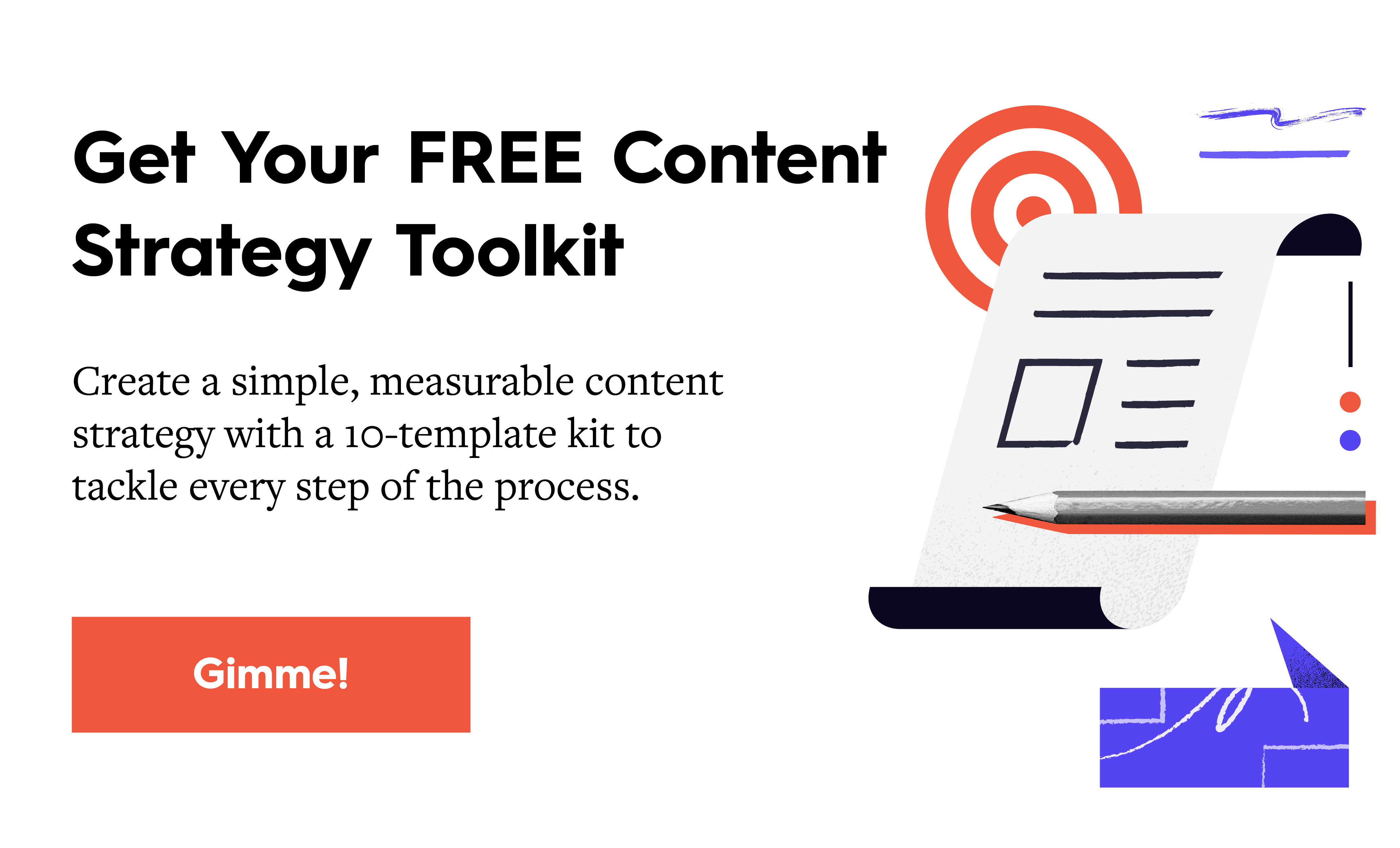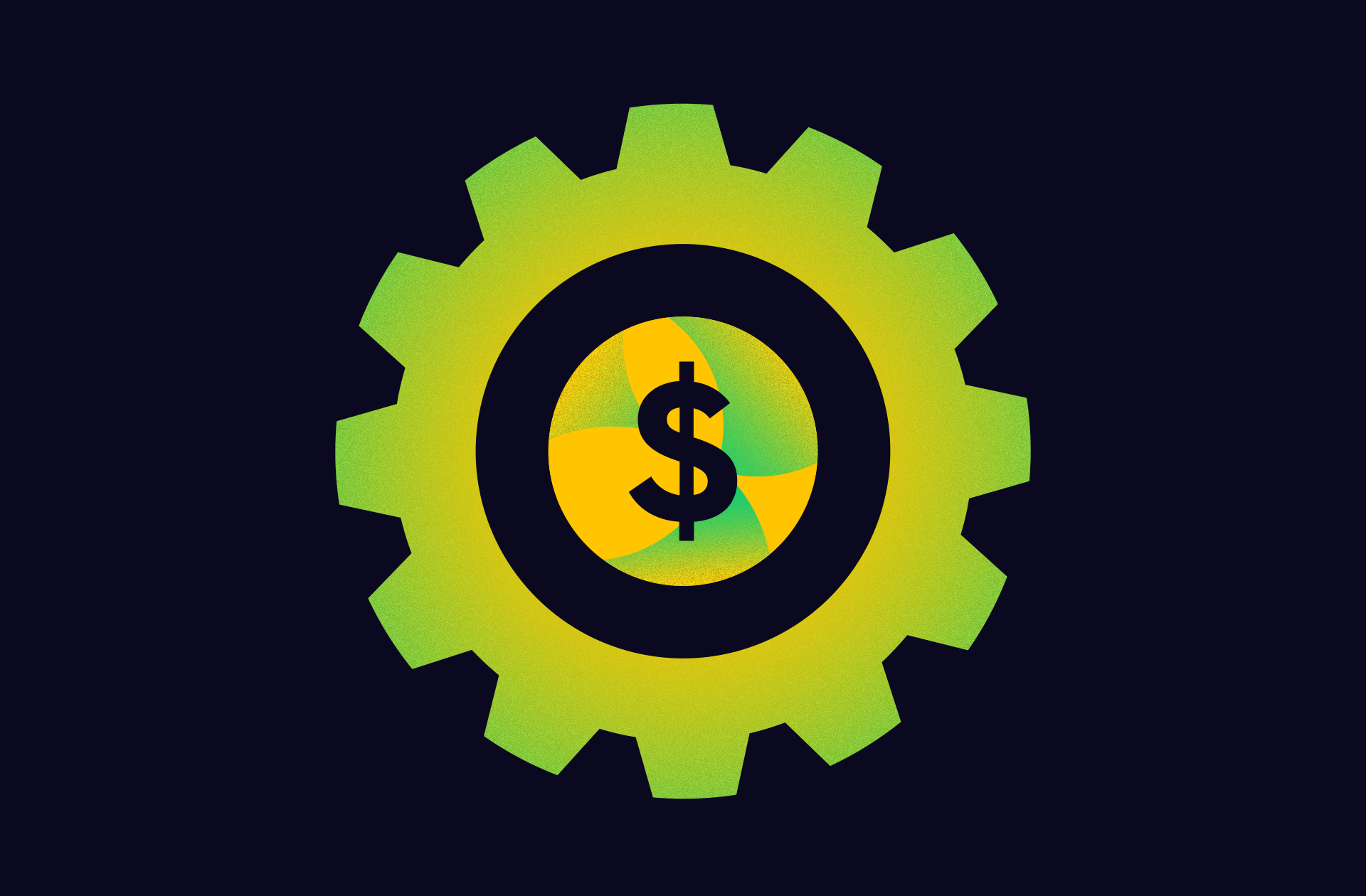Creating a solid content strategy—and bringing that strategy to life—isn’t easy. It takes research, planning, delegation, and more. More and more marketers are facing budget cuts and a lack of resources, so it is increasingly tough to do it all. But if you lean on AI tools to implement your content strategy, you can transform your productivity, reduce menial labor, and use your brain power to focus on the most important things.
This is why, according to the Content Marketing Institute, 72% of B2B marketers are already using generative AI.
If you haven’t hopped on the AI train yet (or aren’t sure how it can help you bolster your content strategy), we’re here to help.

How to Use AI to Hack Your Content Strategy
No matter your industry, audience, or offering, AI can bolster your content strategy at every stage. Whether you’re doing audience research or testing ads, here are all the ways you can use it to plan, implement, optimize, and get better results across the board.
1) Market Research
- Market insights: AI can help you craft and source surveys and experiments to get valuable insights to shape your content strategy.
- Industry research: AI can save you a good amount of time in research by helping you find information quickly—and providing information you may not have otherwise thought to search for.
- Predictive analytics: By analyzing historical data, AI predicts future trends, customer behaviors, and market shifts. This helps you make informed decisions, optimize campaigns, and stay ahead of the competition.
- Competitor analysis: AI tools can analyze competitor strategies, pricing, and market positioning. This information helps you adjust your own strategy to stay competitive
Tools to use:
- SightX lets you share your business objectives or research goals, and its virtual assistant Ada will help you craft perfectly tailored surveys and experiments within seconds.
- Consensus is a search engine that uses AI to find insights in research papers.
2) Audience Research
- Pain points: You can use AI to key questions about your audience (e.g., “What are a CMO’s biggest pain points?” or “What is the biggest barrier to a CFO’s success?”), and AI tools can synthesize and deliver the most helpful insights.
- Customer segmentation and targeting: AI algorithms analyze vast datasets to identify patterns and segments within a target audience. This allows you to tailor campaigns to specific demographics, behaviors, and preferences.
Tools to use:
- 6Sense helps you define ICPs, build a list of target accounts, and craft your audience-building strategy with dynamic account targeting.
Tip: If you need more tips to find your audience, here are 5 simple hacks to do it and segment them into marketing personas and ICPs.
3) Content Creation
- Brainstorming: Whether you’re trying to come up with fresh campaign ideas, variations on a subject line, or article ideas, AI can give you great ideas to iterate. (In general, we’ve found it to be a great tool to inspire you, especially when you’ve hit a creative wall.)
- Researching: Using AI as your research assistant is incredibly effective, as it can easily and effectively educate you on a topic.
- Writing: AI can assist in generating outlines, as well as written content, such as blog posts, articles, ad copy, social media posts, product descriptions, and more.
- Design: AI tools can help you efficiently and effortlessly generate visuals for social, blog articles, white papers, and more.
Tools to use:
- ChatGPT is a free-to-use AI system for research and content creation.
- Dall-E2 is an AI system that can create realistic images and art from a description in natural language.
- Growthbar lets you make SEO content that Google loves.
Tip: For more ways to work more efficiently, see our guide to optimize your content creation process at every stage.
4) Content Optimization
- SEO assistance: AI-powered tools can help optimize content for search engines by suggesting relevant keywords, improving meta tags, and ensuring the overall SEO-friendliness of the content.
- Voice search optimization: With the rise of voice-activated devices, AI can help you optimize content for voice search by understanding natural language queries and providing relevant results.
- Personalization: AI enables personalized content and content recommendations based on user behavior and preferences. From website content to email campaigns, personalization enhances user experience and engagement.
- A/B testing and optimization: AI automates the A/B testing process by rapidly analyzing variations in campaigns or landing pages and identifying the most effective elements.
Tools to use:
- Albert is a self-learning solution that improves the effectiveness of your digital advertising.
- HeadlinesAI helps you generate headlines that convert.
- Scalenut is an AI program that powers your entire SEO content lifecycle.
Tip: For more tips to strengthen SEO, see our guides to choose the right keywords and create the right content.
5) Email Marketing
- Automation: AI automates email campaigns by personalizing content, determining optimal send times, testing subject lines, and segmenting audiences. This ensures your emails are relevant, timely, and more likely to convert.
Tools to use:
- Seventh Sense is an AI software designed to drive maximum performance and engagement with your existing email marketing program.
Tip: If you want more tips to improve your email marketing, here are 10 things you can easily do.
6) Social Media
- Management: AI analyzes social media trends, user interactions, and sentiment to inform your social media strategy. It can also automate posts, respond to comments, etc.
- Influencers: AI can help you identify the best influencers for collaborations and partnerships.
Tools to use:
- Flick helps you grow and manage your socials.
- Influencity is an influencer marketing platform that empowers collaboration.
Tip: Most importantly, make sure you’re measuring the right metrics for your social platforms.
7) Paid Media
- Ad targeting and optimization: AI-powered advertising platforms use machine learning to analyze user behavior and preferences. You can use this information to target audiences more effectively, optimize ad spend, and increase conversion rates.
Tools to use:
- AdCreativeAI helps you generate ad creative that outperforms your competitors.
Tip: For more ideas to increase your reach, find out how to promote content like an agency would.
How to Use AI to Improve Your Marketing
Whether you experiment with one tool at a time, or dive into a full suite, infusing AI into your practice will only continue to make you more productive and more competitive. But there are always ways to improve.
- Create a more personalized buyer journey. Research shows that personalization can massively increase conversions, so consider ways to implement it more at different touchpoints.
- Use AI to do much more than create content. As we’ve talked about here, AI can help you do everything from research to optimize your content. Try these 30 additional hacks to put it to use in your daily work life.
- Stay open to experimentation. Like any tech, AI is all about experimentation. The more you use it, the more you’ll identify the best use-cases for your organization, and the more effectively you can put it to work.
No matter what tools you use, however, remember that you won’t be successful if you don’t have a clear, documented content strategy in place. Download our free content strategy toolkit to make sure your goals and strategy are aligned. Once you have that foundation, you can continue to look for more ways to improve, optimize, and increase ROI with AI.





